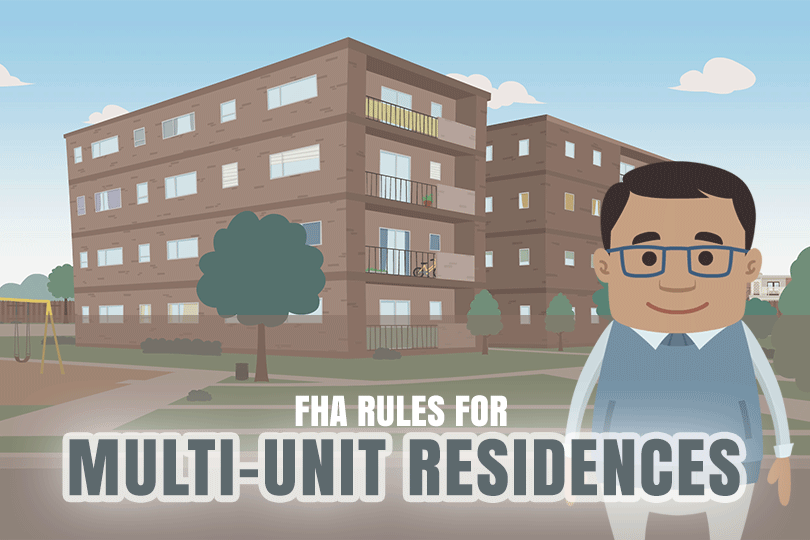FHA Home Loans for Multi-Unit Properties
July 21, 2023
FHA Multi-Unit Property Loans, often referred to as FHA multifamily loans or FHA 2-4 unit loans, are mortgage options specifically designed for individuals who want to purchase multi-unit properties. These loans are insured by the Federal Housing Administration, which means that lenders are more willing to approve applicants with lower credit scores and provide more favorable terms compared to conventional loans.
Qualifying for an FHA Multi-Unit Property Loan
- Credit Score
Although FHA loans are more forgiving of lower credit scores, having a credit score of at least 580 will help you secure a lower down payment (3.5%). However, a score below 580 may still qualify, but with a higher down payment requirement (10%). - Debt-to-Income Ratio
Your debt-to-income ratio should be within acceptable limits, generally around 43%. This means your monthly debt payments (including your mortgage) should not exceed 43% of your monthly income. - Property Requirements
The property you intend to purchase must meet FHA guidelines. It should be in good condition and meet certain safety and habitability standards. - Occupancy
You must occupy it as your primary residence within 60 days of closing the loan and continue to live there for at least one year. - Financial Documentation
Be prepared to provide documentation of your income, employment history, and assets to demonstrate your ability to repay the loan.
------------------------------
RELATED VIDEOS:
Disclosures Give Transparency to Borrowers
Understanding the Purpose of Your Mortgage Down Payment
Putting Money Into Your Escrow Account

FHA Loan Articles
November 21, 2024The dream of homeownership is with some from a young age. But in an uncertain housing market, some grapple with the question: Is buying a home the right move for me?
While renting offers relocation flexibility and lower upfront costs, homeownership provides a wealth of financial and personal benefits.
November 20, 2024Refinancing your mortgage offers a way to cash in on your home equity, potentially reduce your interest rate, or modify your loan term. Borrowers ready to consider have options including FHA loans and conventional loans.
While both provide avenues for refinancing, each loan type may be best for specific needs and financial circumstances. What are the differences between FHA and conventional refinance options?
November 14, 2024The home you want to buy might seem perfect, or it may have a few flaws that are acceptable in the grand scheme of things. But what about issues you can’t spot just by walking through the property a few times? A home inspection provides an unbiased, expert assessment of the property's condition, uncovering potential issues that might not be noticeable to the untrained observer.
November 12, 2024Escrow is an important feature of most typical FHA loans. An escrow account is a third-party account where borrowers deposit funds designated for property taxes and other uses. Requirements to use escrow accounts typically stems from a need to protect all parties involved in the transaction
November 2, 2024When it’s time to consider buying a home, the Federal Housing Administration (FHA) offers two popular options. One is the traditional FHA purchase loan many use to buy a house in the suburbs. But not everyone wants to buy an existing property. Some want more control over the design and configuration of the home.
The other FHA construction loan option, the one-time close mortgage, comes in here. This option is for those who want to approve floor plans, have a say in the types of materials used to build the home and choose its features.







